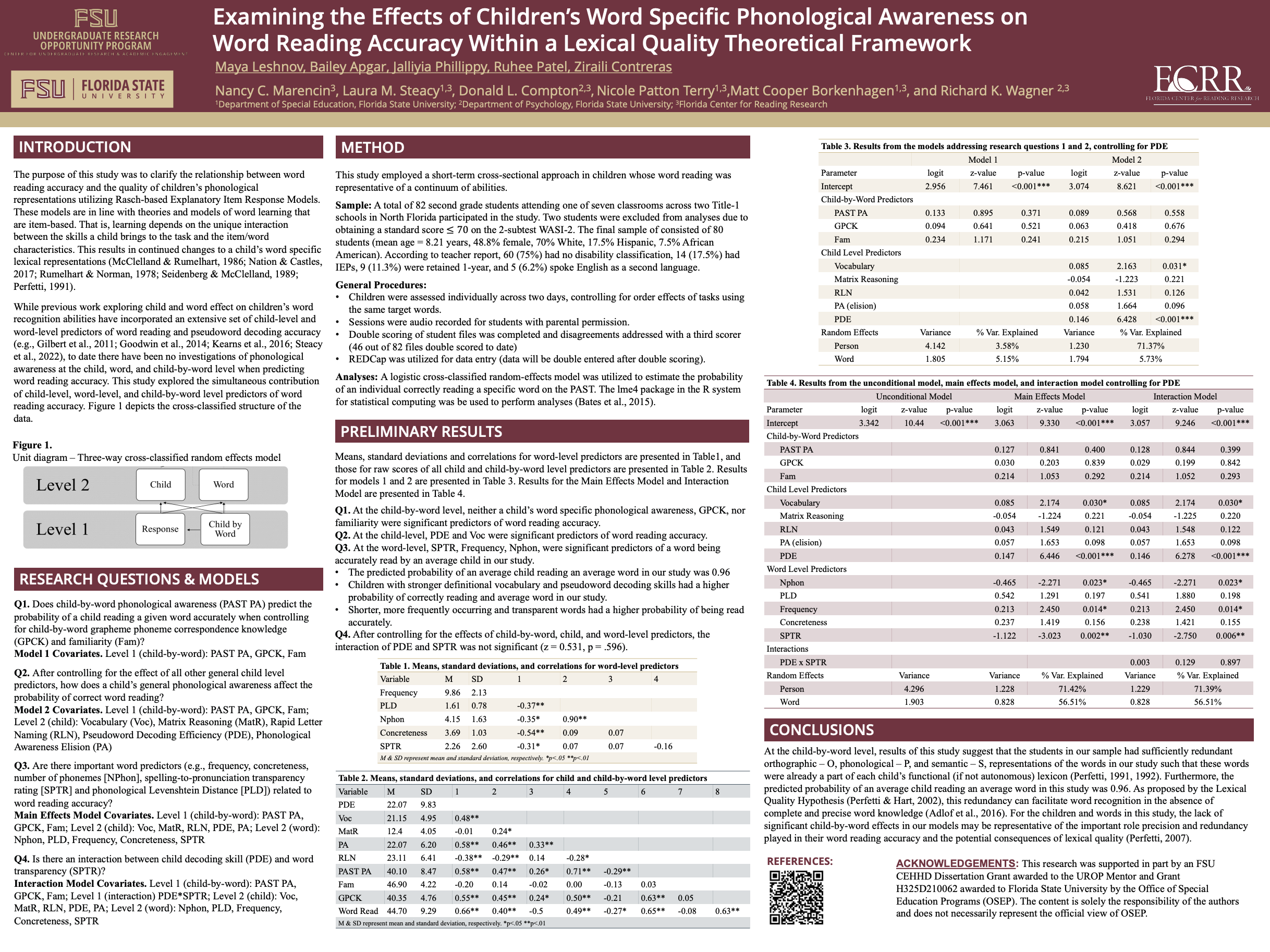Research Symposium
25th annual Undergraduate Research Symposium, April 1, 2025
Bailey Apgar Poster Session 4: 3:00 pm - 4:00 pm/ Poster #205

BIO
I am currently a sophomore on the pre medical track with aspirations to become a pediatric doctor. I am majoring in clinical professions and minoring in child development. I am from Atlanta, Georgia where I have worked in preschools, daycares, summer camps, and elementary schools for several years. Working with children is something I am passionate about, and something I wish to continue doing in the future. At Florida State, I am currently Vice President of Operations for Alpha Delta Pi, member of the FSU Honors Program, member of Remote Area Medical at FSU, member of Who We Play For at FSU, and an employee for FSU Rec. I am a dedicated and driven individual who values commitment and responsibility, while learning how to grow in each endeavor, role, and challenge that I face.
Examining the Effects of Children’s Word Specific Phonological Awareness on Word Reading Accuracy Within a Lexical Quality Theoretical Framework
Authors: Bailey Apgar, Dr. Nancy C. MarencinStudent Major: Interdisciplinary Medical Sciences: Clinical Professions
Mentor: Dr. Nancy C. Marencin
Mentor's Department: Florida Center for Reading Research & Psychology Mentor's College: College of Arts and Sciences Co-Presenters: Maya Leshnov, Jalliyia Phillippy, Ruhee Patel, Ziraili Contreras
Abstract
Purpose
Although the significant relation between phonological awareness (PA) and word reading is well
documented, questions remain about the nature of this relationship over time. This is
important given that the development of lexical representations is item-based and depends on the
unique interaction between the skills a child brings to the task and item/word characteristics. This study
integrates a word specific measure of PA to further clarify the relationship between the quality of an
individual’s phonological representations and word reading accuracy.
Method
Second-grade (n=80) and first-grade students (data collection in progress) attending Title-I schools in the
southeast United States completed the Phonological Awareness Screening Test (PAST; Kilpatrick, 2021)
and read the same 52 words. Children also completed other child-level, word-level and child-by-word
level measures of reading and reading related skills.
Results
Preliminary results from logistic cross classified random-effects models using our sample of second-
grade students indicated significant child-level (decoding and vocabulary) and word-level (spelling-to-
pronunciation transparency rating, frequency, and phoneme length) predictors of word reading
accuracy. At the child-by-word level, a child’s word specific PA, letter-sound knowledge, and familiarity
were not significant predictors.
Conclusions
Initial results suggest these second-grade students have sufficiently redundant orthographic,
phonological, and semantic representations of the words in our study. Redundancy can facilitate word
recognition in the absence of complete and precise word knowledge (Adlof et al., 2016). The lack of
significant child-by-word effects in our models may represent important role redundancy played in word reading accuracy and the consequences of lexical quality (Perfetti, 2007).
Keywords: Phonological Awareness, reading

